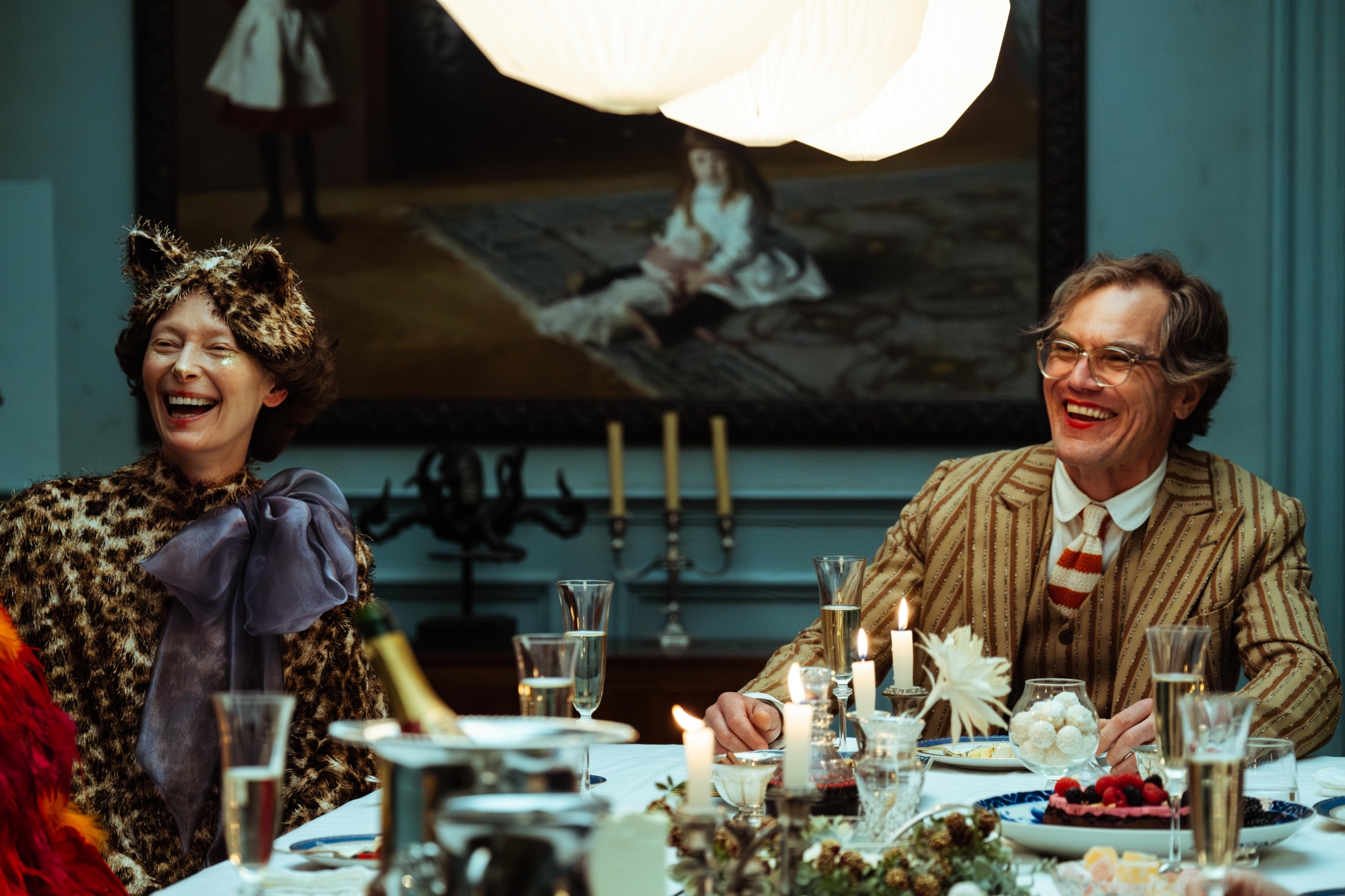
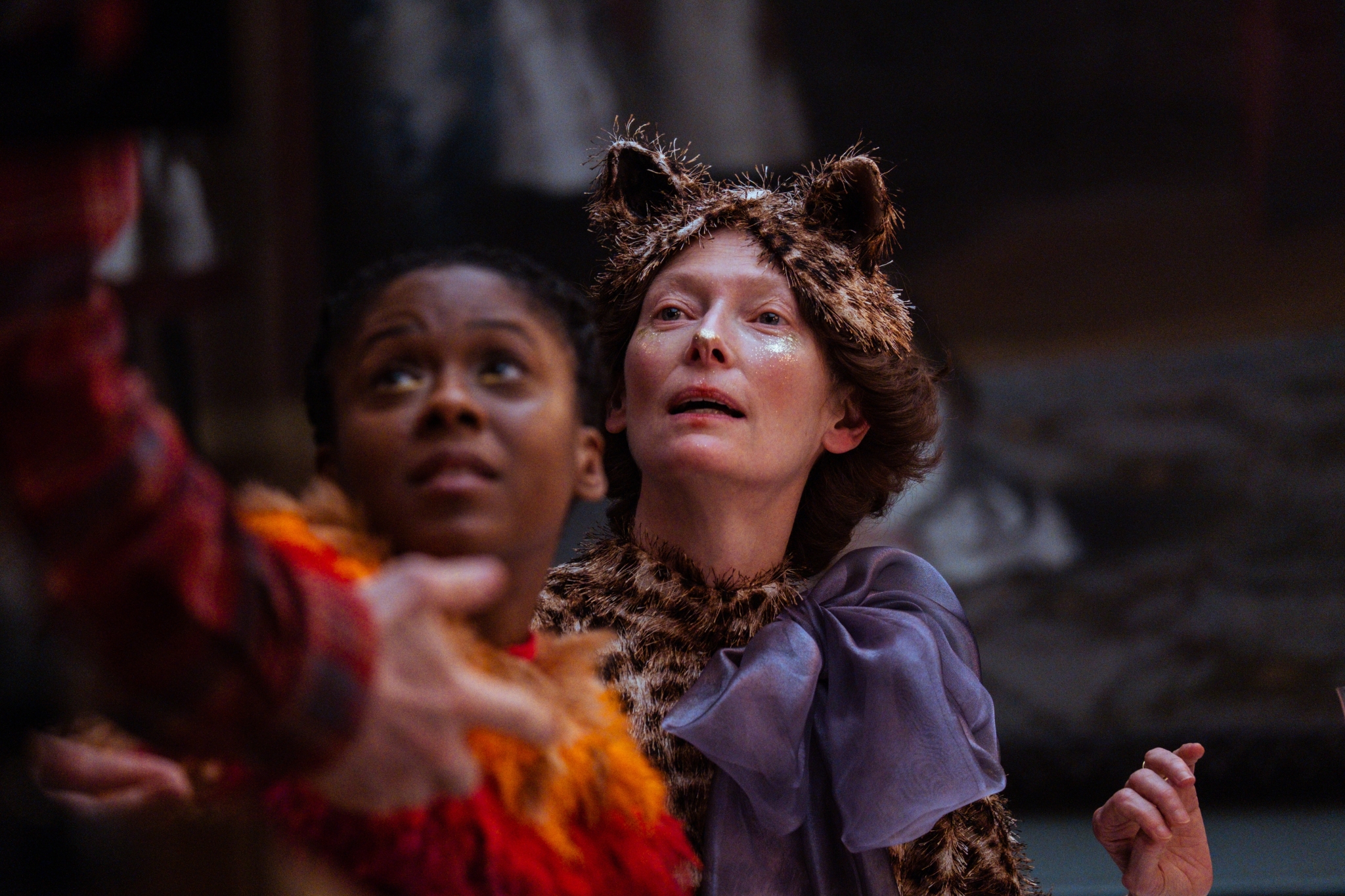
The Act of Killing director Joshua Oppenheimer discusses his latest film The End, a musical set in the luxury bunker of an oil baron.
Atop a snow-capped mountain, a miniature settlement overlooks a rocket ship poised to launch, its astronaut so tall as to reach the chins of the founding fathers carved into Mount Rushmore. Close by, a wooden roller coaster abruptly descends into a verdant forest that hosts the tomb of frontier-era president Ulysses S. Grant. Through the trees, indentured Chinese laborers toil away building the first transcontinental railroad, grinning from cheek to cheek — if they were to look up, they’d notice the Hollywood sign.
What surreal world are we constructing here? This is the first in a set of big questions posed by Joshua Oppenheimer’s latest film, The End, the opening scene of which sees Son (George MacKay) working on his diorama of America from the depths of the bunker his family has inhabited for the 2+ decades since his birth.
Most know Joshua Oppenheimer by his acclaimed documentary The Act of Killing (and its follow up, The Look of Silence), in which he interviewed unrepentant death squad leaders in Indonesia, having them reenact the violence they committed through scripted scenes inspired by the cinematic genres they love—like the western or film noir. The result is one of the most potent examinations of political impunity to ever play out on-screen.
Oppenheimer had been prepared to make his third film in Indonesia as well, but the filmmaker was banned from the country following the release of his films. He’d been curious about the region’s oligarchs and their bunkers, luxuriously crafted to help them survive a societal collapse they, at least in part, helped create. It was a visit to a bunker with an oil tycoon and his family that had Oppenheimer thinking — how would they cope with the guilt from the catastrophe from which they’d be fleeing? How would they cope with the remorse for not bringing all their loved ones with them?
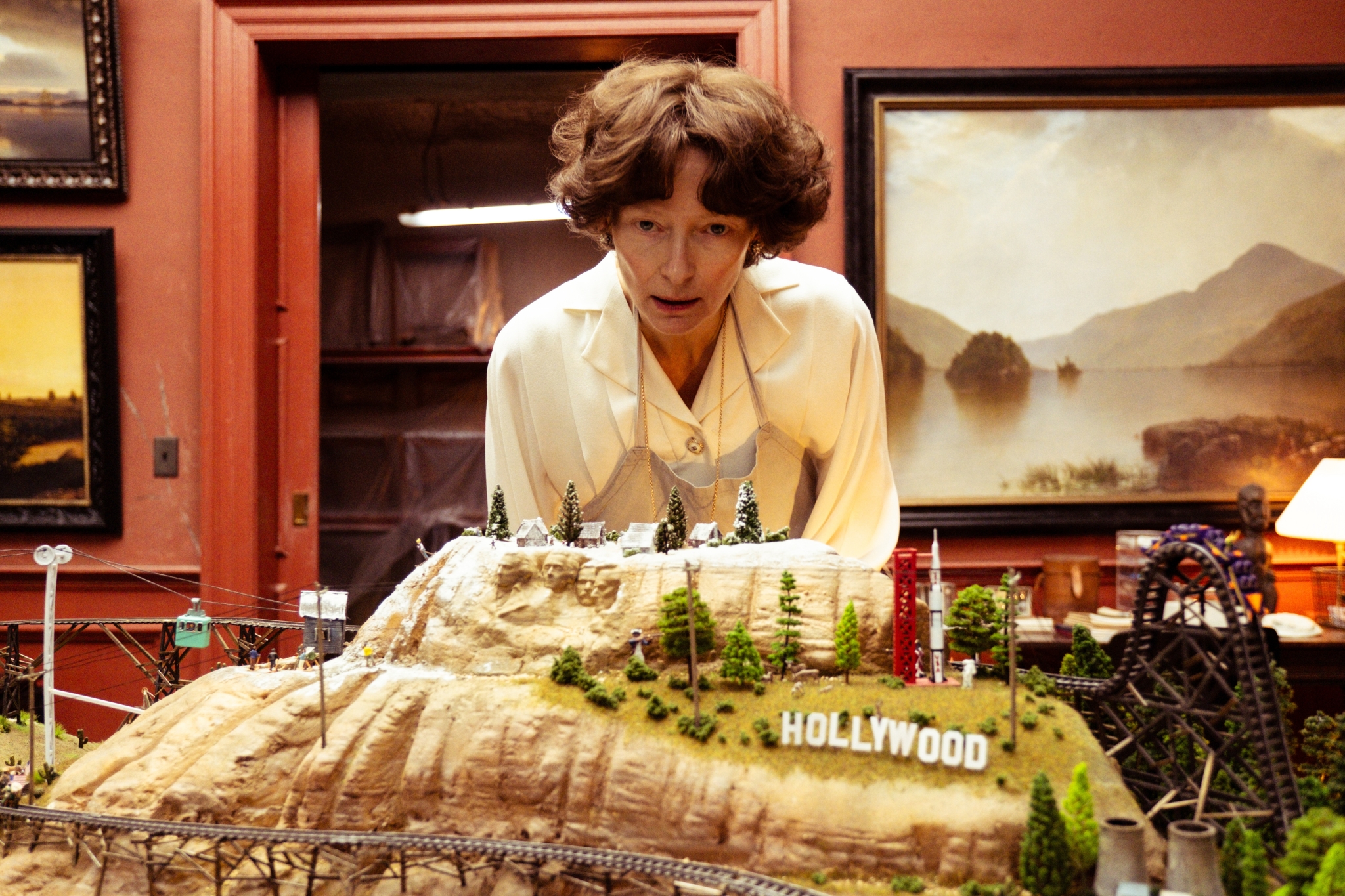
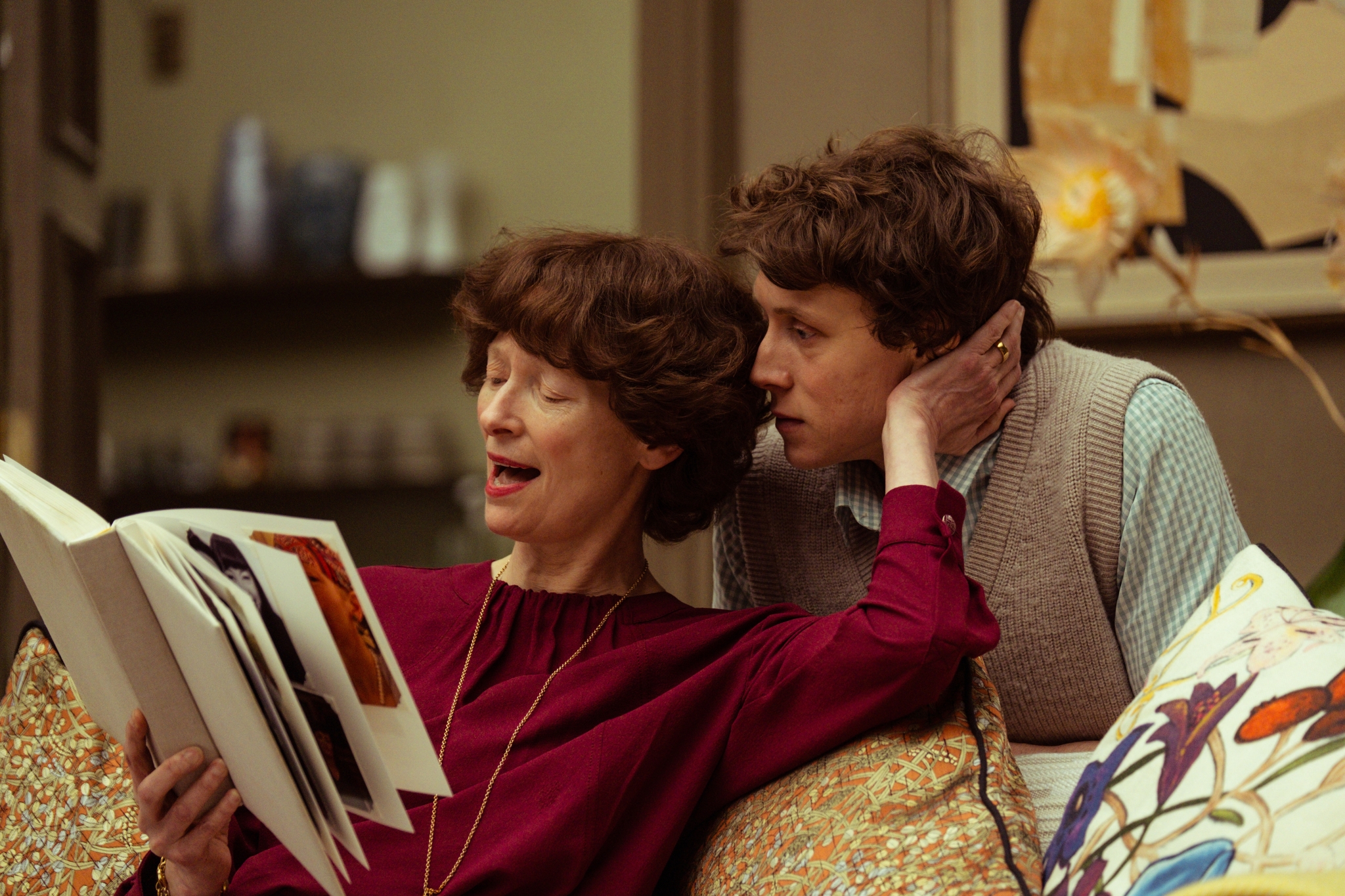
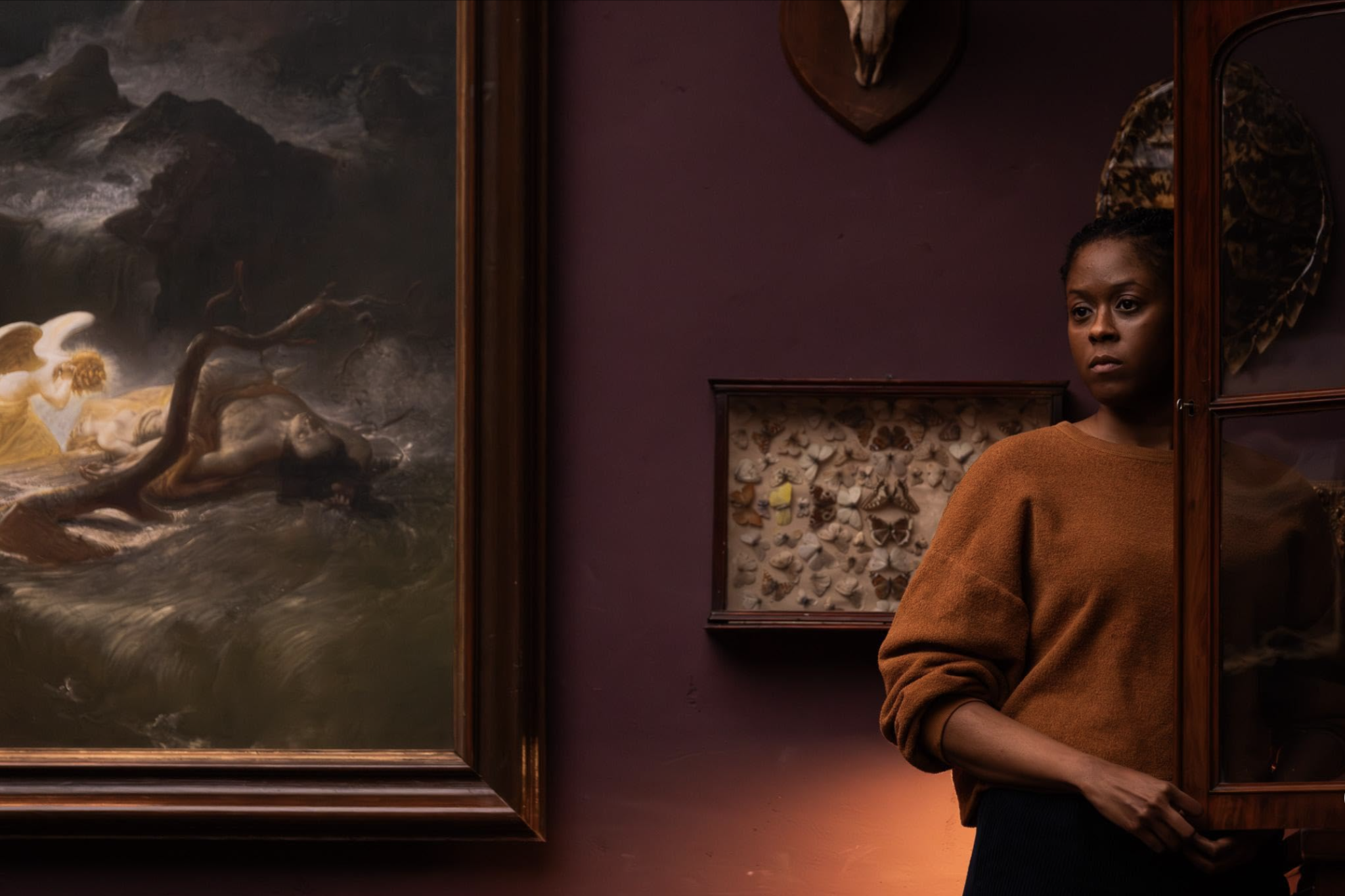
These questions led Oppenheimer to The End, the filmmaker’s first narrative work starring Michael Shannon (Father) and Tilda Swinton (Mother), which sees an oil baron and his family live out the End Times from the vantage point of their bunker—equipped with a swimming pool, a library, enough food for fish suppers with soured wine, and 19th century paintings on each wall, many of them proudly romanticising American expansionism. Father, Mother, Friend, Doctor, Butler, Son have been successfully clinging to normality, until the arrival of a stranger, Girl (Moses Ingram), pokes a hole in their self-delusion and calls attention to their complicity in the ruined world up above.
Perhaps surprisingly, it’s a musical. While Oppenheimer is known for exploring such serious issues as the threat of authoritarianism or the climate emergency, what’s become his signature is his unique ability to tackle tough subjects by warping them through a fun house mirror of colourful reenactments and musical numbers. It’s this strategic hyperrealism that enables viewers to process the overflow of surreality we collectively experience on a daily basis—forcing honesty about where we are, and where we go from here.
With A Rabbit’s Foot, Joshua Oppenheimer discusses why we shouldn’t other the monster, time and how we use fantasy to make life bearable.
Nadia Maria Oliva: Your films take on global issues along with the flawed people behind them. What drew you to this type of work?
Joshua Oppenheimer: I grew up in a family of Holocaust survivors, refugees who had escaped Germany and Austria. So I grew up with the notion that the aim of art and politics was first and foremost to prevent atrocities like the Holocaust from happening again, but more broadly from there, to help us imagine ways of being together — ones which are more honest and more compassionate so that such catastrophes become unthinkable.
I’ve always felt that culture’s tendency to divide the world into good guys and bad guys is a reassuring self-deception; one that has us thinking we’re the good guys. The danger in this is if you divide the world into yourself and the monster, what can you do but round up the monsters? And once the so-called monsters are eliminated, who’s the monster after that?
NMO: So far you’re known for your documentaries, a medium that’s identified by its allegiance to portraying reality honestly. Yet your work operates like an exercise in the adage of ‘lie to get to the truth.’ What’s behind your use of creative devices?
JO: I’m curious about the nature of consciousness and how our feelings and perceptions about the world are shaped through the stories we tell about it. So I have always been interested in consciousness as existing in the realm of fantasy, dream, delusion and narrative.
In The End, Tilda’s character is in song, struggling to face reality. She’s struggling to convince herself of one lie after another. Each lie starts to crumble as she sings it—she’s like a victim of a shipwreck desperately reaching for bits of flotsam and jetsam to cobble together a raft. But things keep breaking apart in her hands.
We grasp for narrative—for fantasy—to reassure ourselves and make reality bearable. I think the kind of singular innovation of The End is to use the musical as a form for denial and delusion.
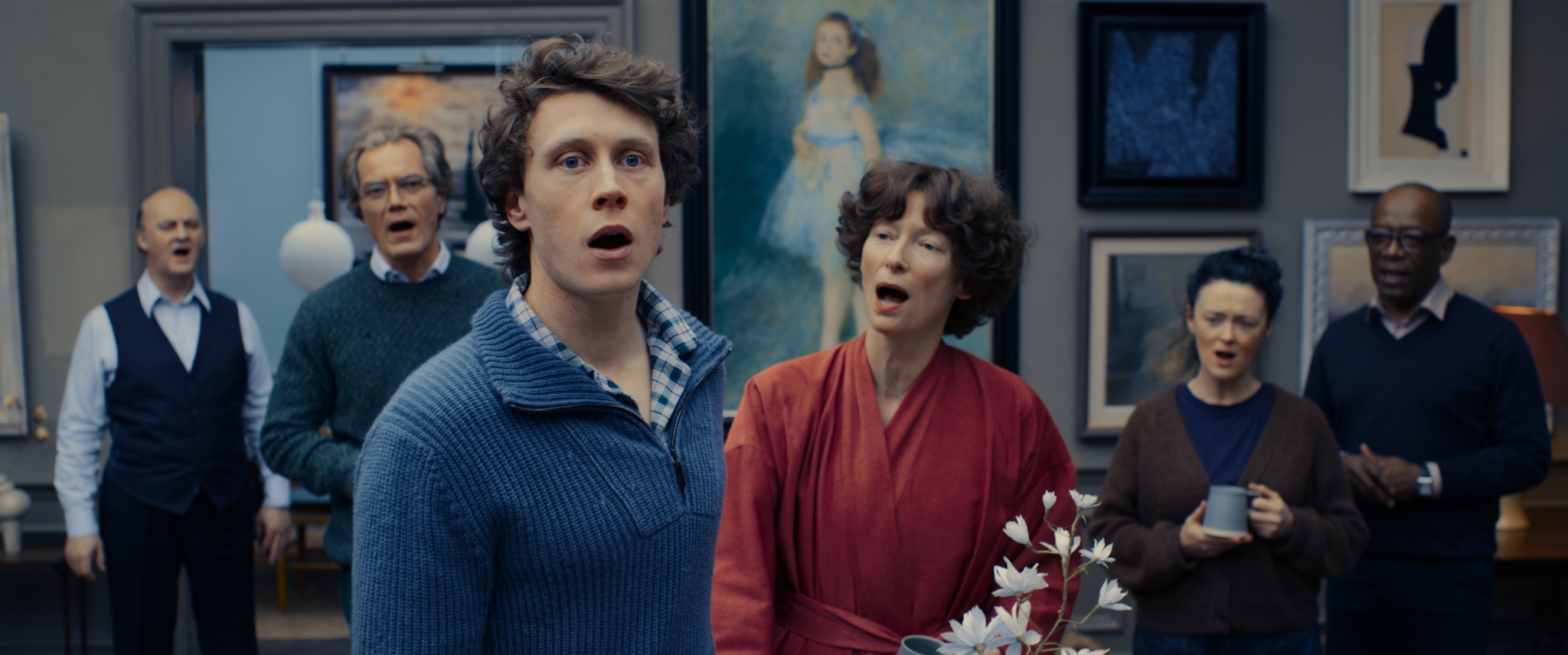
We grasp for narrative—for fantasy—to reassure ourselves and make reality bearable. I think the kind of singular innovation of The End is to use the musical as a form for denial and delusion.
Joshua Oppenheimer
NMO: Was The End a musical from the get go?
JO: Yeah, it was. I was banned from returning to Indonesia after The Act of Killing was released. So I started investigating oligarchs elsewhere who enrich themselves through violence. And I stumbled across an oil tycoon from Central Asia who was buying a bunker like the one in The End, and he invited me to see it with his family.
I found the trip immensely haunting, and I couldn’t imagine doing anything with them other than filming them living in the bunker for 25 years after they moved in, and I realized I wasn’t going to be allowed to move in with them.
NMO: That would have been a very weird 25 years for you!
JO: Exactly [laughs] I would have to be in that bunker with them. On the way home, I watched a musical to clear my head, and the idea came to me. And I said, I know what I’ll do: I’ll shift forms and really, careers—because it’s such a different way of working—making a musical set 25 years after the world ends. It’s not as wild a transition as it may seem in the sense that if The Act of Killing had an elevator pitch, I suppose it would have been “death squad members make a musical.”
NMO: The characters in The End are living in this manufactured microcosm whose peaceful functioning is as fragile as a house of cards. How did you balance the characters’ knowing complicity and self-deception?
JO: There’s something very personal for me in that. I grew up in a family where there was divorce, and the role that I slipped into was to reassure both my parents that whatever they said was right, because that was a way that I could feel safe. There’s something quite universal in that—what if our ability to get along with each other is our life support system?
But our capacity to love and protect is hollowed out when we lie to each other; it’s a minefield of silences. If we impose silence on the people who are close to us—and then collectively, within the broader human family—it results in our failure to rise to the occasion of [things like] apocalyptic climate change or the genocide in Gaza… which I should say, is happening in my name as a Jew, so I take pains to mention it.
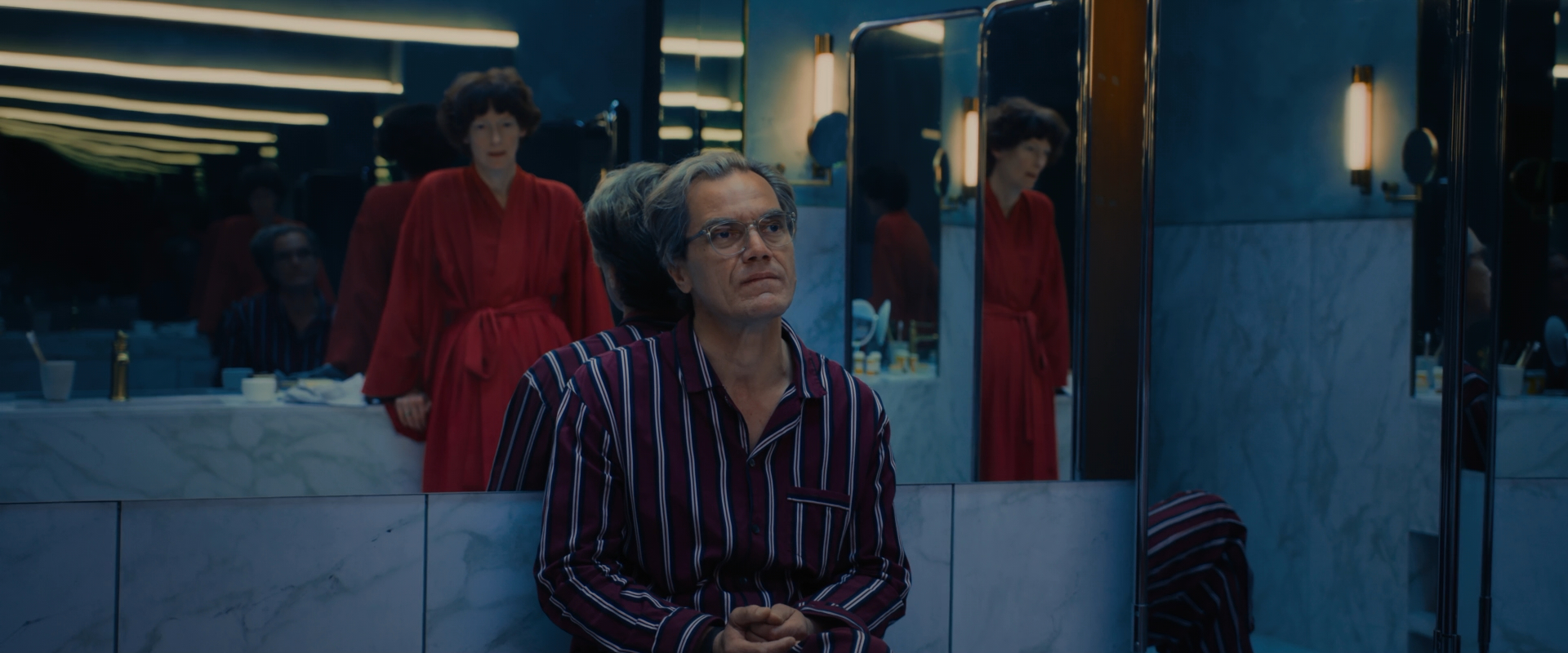
The End, directed by Joshua Oppenheimer (Image courtesy Neon and MUBI)
NMO: I was rewatching The Act of Killing the other day and one of the killers says he just wants to “relax and Rolex.” In The End, Son gifts Girl a luxury watch and explains how billionaires use every unit of time productively. Tell me about the ingredient of time in your work.
JO: Mirrors and time are big motifs for me. Girl sings a song in reaction to receiving that watch, which I think really sums up what time ought to be—‘the seconds ticking past so fast, before you notice them they’re gone forever.’ This is a young woman for whom a second is meaningless. It’s such a mechanical bit of time when you’re not rushing to catch trains. She was surviving on the devastated surface of the Earth, trying to roughly tell how much daylight she had left by the position of the sun. Suddenly, she’s encountering the second.
Embedded in that is this idea around this post-apocalyptic moment where we’re aware of our own finitude. But then we leave the cinema and recognize that there’s still a breathable atmosphere and the sky overhead, and we can change things if we come together and get to work.
NMO: Sticking with time: famously films take a long time to make. Something I always think about is whether film as a medium is equipped to deal with the urgent issues happening around us. How do you see the role of the storyteller?
JO: When I made The Act of Killing and The Look of Silence, it took so long. I thought that by the time I finished making them, another decade will have passed since Indonesia’s genocide and no one in the country will care.
But I don’t think of myself as a storyteller describing a reality. I think of myself as creating immersive experiences that—rather like a dream experience—allow you to encounter the familiar in a new complexity. I always hope the audience feels first and thinks later. And so that idea of immersion is about closeness and looking. So if you’re not pointing to some phenomenon off in the distance but really seeing, then the work will be—at least in some crucial aspect—timeless.
The End is in cinemas from 28th March.





